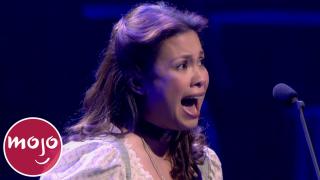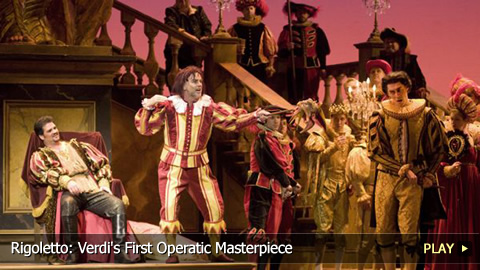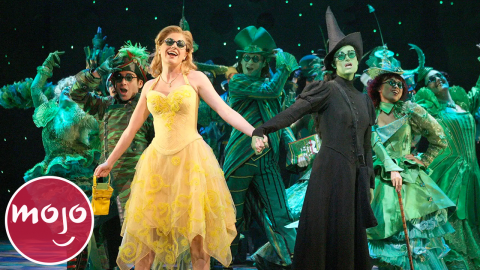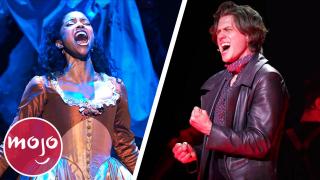Top 10 Opera Songs
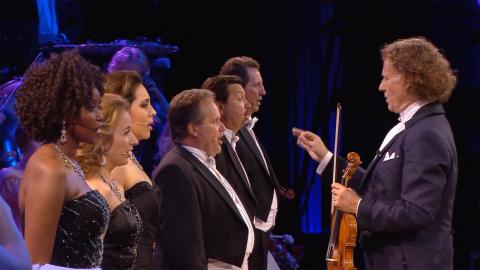
Prepare yourself to become an aficionado of the Aria. Join http://www.WatchMojo.com as we count down our picks for the Top 10 Opera Songs. For this list, we are looking at the songs that are most associated with opera music, and the best songs that have come out of the art form.
Special thanks to our users Airryuu, 1223unknown and Lalajuicycake for submitting the idea on our Interactive Suggestion Tool at WatchMojo.comsuggest
#10: “Flower Duet” from “Lakmé” (1883) Léo Delibes
This aromatic production allows the world’s best sopranos to pair up for a story of Oriental love. As part of the first act of Delibes’ opera “Lakmé,” “Flower Duet” features the title character and pal Mallika as they jaunt off to pick a few flowers. While you may not be familiar with the French title “Duo des fleurs,” you may recognize the song from films such as 2008’s “Bronson”. The song has become a staple of pop culture, and has become the perfect soundtrack for a blossoming love.
#9: “Queen of the Night’s Aria” from “The Magic Flute” (1791) Wolfgang Amadeus Mozart
It’s the second aria from Mozart’s “Queen of the Night Aria”, and a high mountain to climb for even the best vocalists of the world. The actual German title, "Der Hölle Rache", means “Hell's vengeance boils in my heart,” so you might say it’s not exactly a tune you’ll want for your wedding. The Queen of the Night actually pushes her daughter to murder a rival, and the vocal range of this hectic number allows one to process such information in a state of grace. Mozart’s own sister-in-law was the first to belt out the piece, and it’s been a popular production even since.
#8: “Libiamo ne' lieti calici” from “La Traviata” (1853) Giuseppe Verdi
Drink from the joyful cup. That’s the message of this drinking song about a man who sings to his love after a lengthy illness. Based on a play by Alexandre Dumas, “Libiamo ne' lieti calici” comes in the first act of Verdi’s famous production and sets the stage for jolly times and pure romance. Pavarotti used to own this song like few others, and the brindisi was once featured on “The Simpsons.” That’s when you know it’s made the big time. Congrats, Mr. Verdi!
#7: “Voi che sapete” from “The Marriage of Figaro” (1786) Wolfgang Amadeus Mozart
Top 20 Hardest Modern Broadway Songs to Sing
A composition by the late Mozart, this aria conveys all the intensity of new love. In a time when young lovers didn’t have the radio, this was the jam they turned to in order to ease their pain. An Italian opera, the full title of this song translates to “You ladies who know what love is, is it what I'm suffering from?”, and can be found in the opera’s second act. “Voi che sapete” is incredibly pleasant, and often results in opera-goers finding themselves drenched in their own tears.
#6: “Quando men vo” from La bohème (1896) Giacomo Puccini
In Puccini’s famous play about Parisian hippies, Musetta belts out this number at a café with hopes of making a painter jealous. With lyrics highlighting the singer’s remarkable swag, it’s the ultimate performance number for sassy female characters. Also known as “Musetta’s Waltz”, this aria remains one of THE highlights for stage productions of “La bohème.” You might not see modern bohemians singing this song in the streets, but the world would be a better place if they did.
#5: “La donna è mobile” from Rigoletto (1851) Giuseppe Verdi
Rigoletto: Verdi's First Operatic Masterpiece
Doesn’t it sound beautiful, ladies? The English translation of this number is “the woman is fickle,” but Verdi’s spectacular opera ultimately proves otherwise. Luciano Pavarotti once delivered a memorable 1964 performance of “La donna è mobile” in Moscow, and almost twenty years later he starred as the Duke of Mantua in Jean-Pierre Ponnelle’s film. It’s comedic in nature and an operatic essential for aspiring tenors of the world.
#4: “O mio babbino caro” from “Gianni Schicchi” (1918) Giacomo Puccini
Top 10 Underappreciated Broadway Songs
This tearjerker is the ultimate song for when Daddy doesn’t approve of your boyfriend. As part of Puccini’s opera “Gianni Schicchi,” the aria was designed for lady Schicchi to express her love even if her father gets in the way. Maria Callas remains the unofficial Queen of “O Mio Babbino Caro” although some younger singers of today have shocked the world with their ability to channel Lauretta. As a gentle transition for Puccini’s play, “O Mio Babbino Caro” has gently made grown men weep for almost a hundred years.
#3: “O fortuna” from “Carmina Burana” (1937) Carl Orff
Top 10 Hardest Modern Broadway Songs to Sing
Fortune and fate is at the heart of this powerful cantata, and although it only takes a couple minutes to perform, it will stay with you long after. Perfect for any kind of epic film, “O fortuna” sets the stage for a clash with destiny. Based on the collection of medieval poems known as “Carmina Burana,” this mood setter has also become a staple of pop culture, often being used in battle sequences. I bet you never saw that coming, Carl Orff!
#2: “Nessun dorma” from “Turandot” (1926) Giacomo Puccini
Encore! Puccini returns! Originally introduced at Milan’s Teatra alla Scalla in 1926, “Nessun Dorma” was made famous by Pavarotti and has become an iconic number for dramatic productions. “Nessun dorma”, which translates to “None shall sleep!”, made its debut along with the opera “Turnadot” after Giacomo Puccini’s death. And what a send off it was, as the song is considered one of the best of the art form! An aria fit for a tenor, Aretha Franklin stunned audiences when she stepped in to sing the song for Pavarotti at the Grammys when he was struck with last second vocal problems. Before we unveil our top pick, here are a few honorable mentions. “Vesti la giubba” from “Pagliacci” (1892) Ruggero Leoncavallo “Una furtiva lagrima” from “L'elisir d'amore” (1832) Gaetano Donizetti “Il dolce suono” from “Lucia di Lammermoor” (1835) Gaetano Donizetti “Music of the Night” from “Phantom of the Opera” (1986) Andrew Lloyd Webber “Lascia ch'io pianga” from “Rinaldo” (1711) George Frideric Handel
#1: “Habanera” from “Carmen” (1875) Georges Bizet
Otherwise known as “L'amour est un oiseau rebelle” or “Love is a rebellious bird,” this aria gently arrived into pop culture with grace. As the entrance theme for the titular Carmen, the lyrics express love’s inherent madness that can take a beautiful turn or simply ruin everything. Each and every year, “Habanera” can be found in television and film, and now that it’s our #1 opera song of all-time, “Habanera” is a rebellious tune that few can tame. So, do you agree with our selections? What is your favorite opera song? For more mind-blowing Top 10s published daily, be sure to subscribe to WatchMojo.com.


 1
1
 0
0
 report
report

 0
0
 0
0
 flagged
flagged

